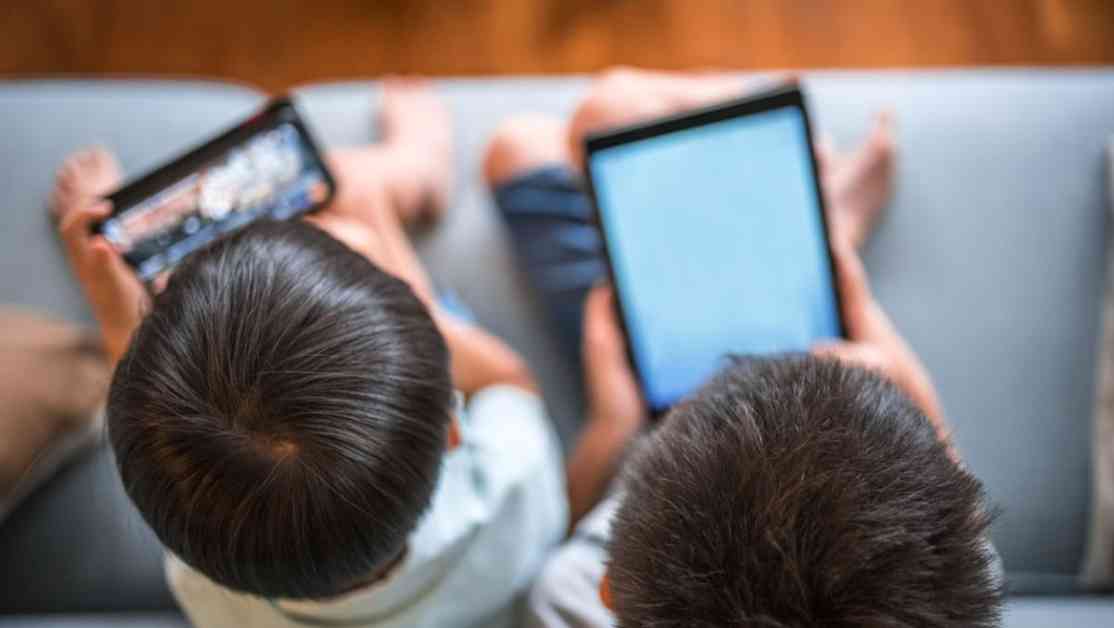Australia’s move to ban social media for children under 16 has reignited debate on screen time and kids’ digital exposure. The Singapore government is in talks with Australia to study the effectiveness of such age restrictions, said Minister of State for Digital Development and Information Rahayu Mahzam in Parliament on Tuesday (Jan 7). On the surface, the ban sounds like a good idea, as it protects children from cyberbullying and harmful content. But are we missing the forest for the trees? Children are not just scrolling through social media; they’re immersed in gaming, streaming, and a range of other digital distractions. We can’t just cut them off from the digital world – they’ll find ways back in, often more covertly. A ban may seem like a quick fix, but it doesn’t teach kids how to navigate the digital world responsibly.
For me, this issue hits close to home. A few years ago, my family decided to raise our kids with minimal screen exposure. Like many parents, we used phones to soothe our firstborn’s toddler meltdowns. But the more screen time we allowed, the longer and more intense her tantrums became. In contrast, our second child, who had minimal screen exposure, has a better attention span and can focus on activities like jigsaw puzzles for 30 minutes without getting distracted.
## Impact of Excessive Screen Time
It turns out we weren’t imagining things. Studies in Singapore show that excessive screen time is linked to reduced attention span, cognitive delays, and health issues like obesity and myopia. Research from Growing Up in Singapore Towards Healthy Outcomes (GUSTO) indicates that excessive screen time at 12 months can impair executive function by the time children reach nine years of age. According to the Ministry of Health’s guidelines, children aged 18 months to 36 months should have less than 1 hour of screen time per day. But how many of us are sticking to this limit? A study by Suncare SG found that while nine in 10 parents agree non-screen play is important, they still allow their preschoolers to use devices for 1-2 hours on weekends. The challenge is in implementation. With both parents often working full-time, and children cared for by domestic helpers or grandparents, enforcing screen time rules is tough. As kids grow into teenagers, the need to independently use devices to socialize and shape their identities increases.
## Rethinking the Urban Environment
As intergenerational living gains traction among urban planners and housing developers, more amenities like playgrounds, communal gardens, and courtyards will no doubt feature in future developments. But could entire neighborhoods be redesigned such that kids can move about safely and independently? The Land Transport Authority’s Friendly Streets scheme, which aims to retool roads to be more senior-friendly, should also take the needs of young children into account, ensuring that these spaces are safer and more accessible for everyone. Small changes like widening pavements and pedestrianizing estates can have a big impact: By making it easier for children to walk and cycle around instead of being ferried by car, we provide them the freedom to socialize, explore their neighborhoods, and develop the skills to navigate the world on their own. Unlocking unused land and after-hours school facilities would also give children opportunities for impromptu, lightly supervised play. When I was growing up, HDB void decks were social hubs – kids played games with neighbors and could roam freely under the watchful eye of parents. Today, void decks are mostly just that: Void.
## Community Initiatives for Kids
We need more grassroots efforts to make shared spaces more engaging. Parents need to step forward to create the community they want to live in by establishing parenting support groups where families share resources, help each other with childcare, and host playdates or group activities. In Toa Payoh, a father-and-son team collects and repairs discarded ride-on cars, hosting a community playdate every Sunday evening. Balance Bike SG encourages families to nurture a love of cycling through parent-organized friendly competitions. The Resonance Project, started by teenagers, brings free music classes to underserved elderly and children.
## Getting Tech Companies to Contribute
Instead of imposing age restrictions and outright bans, let’s incentivize tech companies, social media platforms, and game developers to contribute solutions too. What if these companies funded sporting facilities and playgrounds where young children and teens can socialize offline? This would be a powerful example of corporate social responsibility, showing that tech companies are not only innovating but actively contributing to the communities they impact. This concept isn’t new. It’s akin to carbon credits for polluters. In 2023, video game maker Electronic Arts launched FC Futures, a US$10 million initiative to improve access to football through refurbished pitches and essential equipment for underserved youth. Similarly, ByteDance’s 8th Note Press will release print books in 2025, with titles that focus on genres popular with younger TikTok users, such as romance and young adult fiction. Closer to home, Japanese entrepreneur Taizo Son expanded his non-profit Vivita to Singapore, creating Vivistop, providing a free space akin to a garage and a lab in Kampong Eunos for children to explore their creativity offline.
## Let Children Be Children
As a society, we can be more patient and understanding. The less we judge parents for their noisy kids in void decks or crying children in restaurants, the less they will feel pressured to hand over an iPad for quick relief. Instead of frowning at kids being “too loud” or “too active”, we should embrace and encourage their natural energy. Ultimately, raising screen-free kids isn’t just about what happens at home. It’s a community-wide mission. It’s about caregivers, companies, and policymakers working together to create a future where children can thrive without the constant pull of digital screens. The next generation deserves a world where real connections and experiences shape their lives. Let’s make that happen.
Debbie Yong is a former journalist turned brand strategist and a mother of two.


























